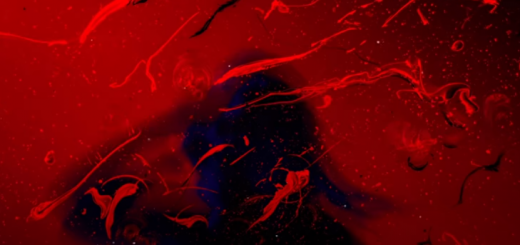IN NOME DEL PADRE by Måneskin Lyrics Meaning – An Introspective Dive into the Quest for Identity and Redemption
Lyrics
Ed ho fallito mille volte però ci ho provato
Ho messo pesi sulla schiena e poi sono caduto
Ho perso sangue dal naso e mi sono rialzato
Però a vent’anni già mi chiedo se son troppo stanco
Se quello che mi serve è quello che ho desiderato
Se un giorno riuscirò davvero ad esser realizzato
E sono spaventato
E tu stammi ad un palmo dal culo, testa di cazzo
Ho scelto sempre di essere uno ed uno soltanto
Toccare il cielo e ritornare a mangiare l’asfalto
A volte ho pianto, ma non è questo che mi ferma
Voglio il mio riscatto
Tu stammi ad un palmo dal culo, testa di cazzo
Ho scelto di essere uno ed uno soltanto
Toccare il cielo e tornare a mangiare asfalto
In nome del padre, del figlio e spirito santo
Ah, ah, ah, ehi
In nome del padre, del figlio, spirito santo
Ah, ah, ah, ehi
In nome del padre, del figlio, spirito santo
Ah, ah, ah, ehi
Nome del padre, del figlio, spirito santo
Ah, ah, ah, ehi
Nome del padre, del figlio, spirito santo
Ehi, fate spazio, fatene tanto
Che adesso non mi basta il mondo, non mi basta il palco
Mi hanno chiamato in tutti i modi, anche codardo
Son morto più di cento volte, mai morto invano
Tu dimmi che stai nascondendo, cos’hai nel palmo?
Perché dopo che mi hai guardato mi dai del pazzo?
Se pensi che sono cambiato, che sono un altro
Non hai capito un cazzo di niente, quindi che cazzo mi guardi?
Tu stammi ad un palmo dal culo, te lo ripeto
Ho scelto di guardare più avanti di ciò che vedo
Il mio passato non me lo scordo, non lo rinnego
Colpisci forte, tanto non cado, rimango in piedi, ah, ah
Tu stammi ad un palmo dal culo, testa di cazzo
Ho scelto di essere uno ed uno soltanto
Toccare il cielo e tornare a mangiare asfalto
In nome del padre, del figlio e spirito santo
Ah, ah, ah, ehi
Nome del padre, del figlio, spirito santo
Ah, ah, ah, ehi
Nome del padre, del figlio, spirito santo
Ah, ah, ah, ehi
Nome del padre, del figlio, spirito santo
Ah, ah, ah, ehi
Nome del padre, del figlio, spirito santo
Ehi, per quello che ho vissuto, il tempo che ho buttato
Pensavi che fossi morto e poi sono rinato
Di cos’è fare l’artista te ne hanno mai parlato?
Di tutto quello che ho perso, che ho sacrificato
Di non avere voce, restare senza fiato
Di avere mille persone che aspettano un tuo sbaglio
Sapere che ogni passo falso verrà condannato
Mi chiedo spesso se son stato solo fortunato
E non mi passa il moto della mia rabbia
Spero che il mio passato se lo porti via la carta
È matto, questo è matto, chiedi perché lo faccio
In nome del padre, del figlio, spirito santo
Måneskin’s song ‘IN NOME DEL PADRE’ is not just another entry in the annals of rock music; it’s a complex narrative that delves into the soul’s struggle for meaning, identity, and redemption. Frontman Damiano David delivers a raw and passionate performance, ensuring that each word punches through the fabric of our consciousness.
The Italian rock sensation, known for their victorious rise at Eurovision 2021, once again enthralls fans with a track that serves up more than meets the ear. Balancing between vulnerability and aggression, ‘IN NOME DEL PADRE’ is a riotous confession and a call to arms.
A Visceral Cry for Recognition and Purpose
At its core, ‘IN NOME DEL PADRE’ is an individual’s outcry against the crippling sense of being unwanted. The lyrics paint a vivid picture of trying and failing, of carrying burdens and falling, but persistently clawing back to one’s feet. Youth’s fatigue serves as an undercurrent, begging the question if fatigue is a result of running after true desires or chasing false shadows.
The song’s pulsating rhythm mirrors this relentless struggle, reinforcing the depth of the personal battle it depicts. Our protagonist not only faces external challenges but also grapples with internal doubts, fears, and the anxiety of never achieving self-actualization that resonates deeply with the listener.
The Profound Symbolism: Invoking the Trinity
Måneskin calls upon the Holy Trinity, albeit in a non-traditional and possibly defiant manner. The repetition of ‘In nome del padre, del figlio e spirito santo’ threads through the song, affirming a claim to some form of divine right or jesting at the facade of sanctity people hide behind.
Symbolically, the invocation might illustrate the search for a guiding force or a plea for recognition from the skies, seeking blessings for the journey, the fight, the triumphs and inevitable falls of a life lived in the pursuit of art and truth.
Defying Labels and Embracing One’s Unique Journey
The track is a rejection of societal labels and a declaration of self-reliance. Måneskin challenges the assertions of cowardice and madness with the defiant resilience of one who knows rebirth through adversity. It’s a serene acceptance of the past, carved into the soul, that marks this journey of becoming ‘uno ed uno soltanto’—one and one only.
The journey from touching the sky to ‘mangiare l’asfalto’—eating asphalt—suggests a cyclic nature of life where highs and lows are inevitable, yet through all, identity remains singular and unapologetic.
The Crushing Weight of Expectation and Scrutiny
Måneskin doesn’t shy away from revealing the pressures that come with being an artist, the ‘mille persone che aspettano un tuo sbaglio’—a thousand people waiting for your mistake. It’s a commentary on the constant demand for perfection, the unforgiving nature of the public eye, and the suffocating hold of judgment.
The haunting question of whether success is just a stroke of luck, or if it’s deserved, ties in with the human need for validation and the terror of attributing one’s achievements to mere fortune instead of skill and sacrifice.
Unearthing the Song’s Most Resonant Declarations
Lines like ‘Pensavi che fossi morto e poi sono rinato’—You thought I was dead and then I was reborn—hit with the force of a comeback anthem. It’s a powerful proclamation of resilience, a rebirth marked by wisdom gleaned from facing down one’s demons and emerging victorious.
This anthem is not asking for forgiveness nor permission; instead, it’s a declaration of personal evolution. Måneskin dissects the profound, even if sometimes painful, process of growth that each individual must brave, reinventing themselves in the fires of their trials.








